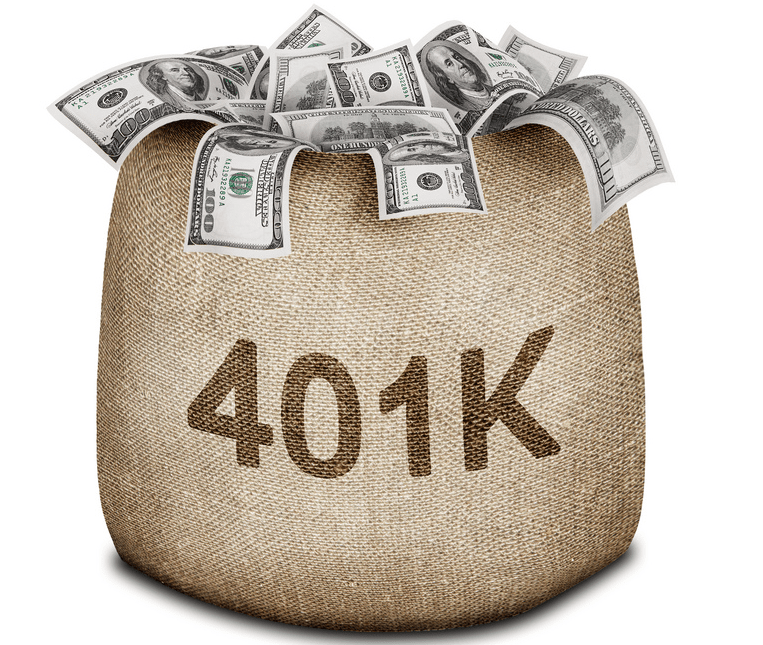Many of us have 401ks—but do you know what kind of tax trap you might be getting into with it? Chances are, you’ve heard about the benefits of amassing wealth through a 401k. And it’s true, investing in a 401k can offer long-term financial security. But there’s something else to consider: taxes.
It’s easy to get caught in the tax trap when it comes to contributing to your 401k. Without understanding the tax codes and strategies regarding this type of retirement plan, it can be tricky to navigate the waters. Don’t worry though—we’ve got you covered. In this article, we will walk you through what you need to know about 401ks and taxes so that you can avoid any unpleasant surprises come tax time.
What Is a 401k?
If you’re just entering the world of investing, you may have heard of a 401k, but you may not know exactly what it is. A 401k is a type of retirement savings plan that allows you to save money for your future while also benefiting from tax advantages.
In a nutshell, contributions to your 401k are made with pre-tax dollars. This means that when you withdraw the money at retirement age, it’s completely free of federal income tax. It’s like gaining an instant cash bonus! In addition, many employers will match your contributions up to a certain amount — meaning that even more money ends up in your pocket over time.
Moreover, the money in your 401k grows on a tax-deferred basis — meaning you don’t pay taxes on any earnings until withdrawal. That’s why it’s so important to understand the tax implications of your 401k. After all, no one wants to get stuck with a hefty tax bill at retirement!
Tax Advantages of 401ks
When it comes to retirement savings, there’s a lot of talk about what a 401k can do for you. One of the biggest motivations for investing in one is the potential tax savings. But before you become too enamored with the idea of tax-free money, there are some important considerations you need to be aware of.
For starters, 401ks offer tax advantages throughout your working years. That’s because contributions are made with pre-tax money—so instead of paying taxes on your income up front, any money you put into a 401k will be deducted from your taxable income and you’ll only be taxed on it when the time comes to make withdrawals in retirement.
But don’t get too caught up in the idea of pre-tax savings: when it’s time to withdraw funds from your 401k during retirement, those same funds will be subject to taxation by Uncle Sam. So, even though you may have saved taxes during your working years, you could also end up facing a hefty tax bill when it comes time to start withdrawing funds from your account.
The 401k Tax Trap
One thing you don’t want to get caught in is the 401k tax trap. Don’t let the tax man get you! The 401k tax trap is a major issue for those who don’t plan ahead and could potentially leave you with a hefty tax bill come April.
The 401k Tax Trap can arise when your taxable income is more than what you had estimated prior to investing in your 401k, as your contributions are pre-tax investments, meaning your total taxable income actually increases. To give an example, if your annual salary is $50,000 and you contribute $10,000 to a pre-tax retirement plan like a 401k, your taxable income will increase by the full amount of contributions and be reported as $60,000 for that year.
To avoid getting caught in this trap, it’s important to plan ahead when it comes to retirement savings. Do some research and figure out how much you need to contribute each month to reach your retirement goals without exceeding the limits of your income bracket. That way, when it comes time to file taxes, you won’t be surprised by any unexpected tax bills!
How to Avoid the 401k Tax Trap
Now, how can you avoid the 401k tax trap? Well, the good news is that there are a few things you can do to protect yourself from being caught in this trap and ensure you don’t pay more taxes than necessary.
Contribute early and often
Start contributing to your 401k as soon as possible and keep contributing regularly. This way, your contributions are spread out over a longer period of time and won’t all be due at once when taxes become due. Paying off small amounts on a regular basis will help keep your taxes low throughout the year.
Make sure your contributions are made with after-tax dollars
Because IRA and 401k contributions take pre-tax dollars, it’s important to first use up any other funds you have available before making these contributions. That way, you’ll be able to take full advantage of tax benefits offered by these accounts.
Consider Roth IRA options
Making Roth IRA contributions can be beneficial in certain situations because those contributions are taxed upfront with no deductions when they’re withdrawn later in life. This could result in a lower overall tax burden than with pre-tax IRA or 401(k) accounts.
By following these simple steps, you can make sure you’re not caught off guard by the tax trap that comes with 401ks and other retirement accounts. Be sure to explore all of your options so you can save money on taxes and ensure that you get the most out of your retirement savings!

Other Retirement Savings Options
You may be surprised to learn that there are other retirement savings options out there that don’t have the same tax traps as the 401k.
The best part? You can still save for retirement without the extra worry or hassle. Here are a few other options to consider:
Traditional IRA
A traditional IRA is like a 401k in that your contributions are tax deductible and your earnings are tax-deferred until you make withdrawals during retirement. But, unlike a 401k, you may be able to deduct your contribution from your taxes even if you have employer-sponsored plans.
Roth IRA
With a Roth IRA, contributions are not tax deductible but distributions from the account (including earnings) during retirement are income tax free. This means that you’ll pay taxes on money going into the account—and not when you withdraw it.
Health Savings Accounts (HSA)
Contributions to HSAs are also tax deductible and distributions used for qualified medical expenses during retirement are income-tax-free. Plus, withdrawals to cover medical expenses at any age can be made without incurring a penalty, making an HSA a powerful combination of health insurance and retirement savings rolled into one plan.
Strategies for Maximizing Your Retirement Savings
When it comes to maximizing your retirement savings, you’ve got options. Don’t get caught in the 401k tax trap—there are ways to save and still avoid the high taxes. Here are a few tips:
Contribute to Other Retirement Accounts
Even if you have a 401k, you can still contribute to other retirement accounts such as an IRA or Roth IRA. IRAs often offer more flexibility and higher contribution limits, which can make them a great alternative to your 401k.
Invest in Tax-Efficient Funds
If you are investing in a 401k, make sure you pay attention to the fees and taxes that may be associated with the fund. Look for funds that are tax-efficient so that they won’t be eating away at your returns due to excessive taxes.
Make Catch Up Contributions
If you’re over 50, take advantage of catch up contributions. This allows you to save more than the regular contribution limit with pre-tax dollars, allowing your money to grow faster.
So remember: You don’t have to get caught in the 401k tax trap – there are plenty of alternatives and strategies for maximizing your retirement savings.
Conclusion
All things considered, the tax trap associated with 401(k)s can be difficult to navigate, especially for those who are just starting out. However, with a little knowledge and guidance, you can avoid falling into this trap. As with any investment, it pays to do your homework and be aware of the potential risks and rewards.
Though 401(k)s are a great savings option, they come with a few strings attached. It pays to be mindful of the tax implications that come with this type of investment. With this knowledge, you can make the most of your 401(k) and enjoy the financial security and peace of mind that come with it
For Perfect Guidance and Help, Get in touch with Peak Mutual today.



